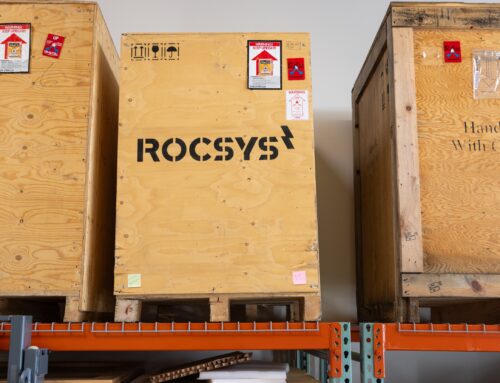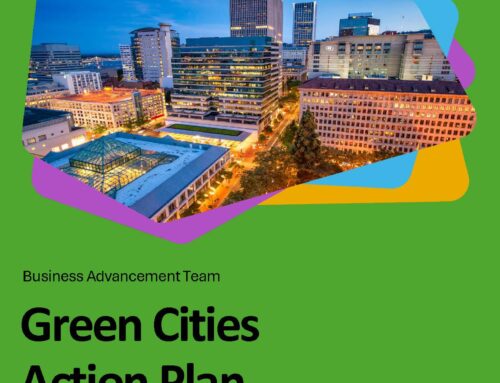A Quick Guide to Oregon Climate Tech Coalitions
Emerging from the pandemic and with the help of significant federal funding opportunities in climate and equitable economic recovery, Portland and Oregon have developed a fair share of climate tech coalitions, which address everything from workforce to smart grid to new state legislation. It’s no surprise that the list is long because these efforts combine what matters most to Oregonians – collaboration, sustainability and working toward an equitable economy.
Here is a summary of the many coalitions and convening efforts to shape the future of the climate tech economy in Oregon and the Portland metro area along with ways to get involved.
Portland State University (PSU)-Led Energy Sector Coalitions. PSU is leading two federally funded grants to build ecosystems in both smart grid and utility-scale Battery Energy Storage Systems (BESS). Coalition members consist of representatives from the diverse electric power industry with roots in the Pacific Northwest including investor-owned and public utilities, power equipment manufacturers, engineering consultancies, smart grid software and modeling companies, green building engineering firms, and renewable energy developers and operators. Leading the stakeholder convenings for both PSU-led coalition efforts is Angela Jackson, Director of Industry and Entrepreneurial Engagement in the PSU President’s Office. Both PSU-led coalitions are looking to expand. If you are interested in engaging with or learning about these activities, contact Angela Jackson at angela.jackson@pdx.edu.
The two technology focus areas and federal planning grants are:
- NSF Innovation Engines Smart Grid Coalition. PSU secured a Phase 1 NSF Regional Innovation Engines Grant for Advancing Smart Grid Technologies in the Pacific Northwest. The coalition includes three Oregon universities (Oregon State University, PSU and University of Oregon) as well as Oregon’s largest investor-owned utilities along with a diverse set of private sector partners looking to double down on smart grid research and development in the Pacific Northwest. A well-known figure in the energy community, Bob Bass, the PSU Power Systems Engineering Professor and Principal Investigator for the grant, answered questions about the project in this interview here.
- EDA Tech Hubs Smart Energy Consortium. Ask anyone in the energy community where Portland leads in clean energy, and they are likely to mention utility-scale Battery Energy Storage Systems (BESS). With global leaders such as Powin and ESS, Inc based in our region along with Goldman Sachs-backed BESS developer Gridstor and BESS engineering consultants Powerswitch (to mention only a few), the energy community has long wondered how the region would capitalize on this opportunity to grow a globally competitive hub for utility-scale BESS here in the Portland metro area. Enter PSU’s second planning grant award as part of the EDA Tech Hubs program. Leveraging the existing smart grid coalition, this consortium aims to define key initiatives that will actualize Portland as a global hub for innovation, talent development and knowledge exchange in utility-scale BESS.
Mass Timber Coalition. After the wildfires of 2020, a coalition of stakeholders formed a plan to address our state’s overlapping challenges of climate change, wildfires, rural and urban economic development, responsible stewardship of our forests and affordable housing. With the Port of Portland as lead applicant, the coalition successfully won a $41.4M grant as part of the EDA Build Back Better Challenge. Subsequently, coalition member Tallwood Design Institute successfully secured two more federal opportunities to bolster the work of the coalition and increase investment in the region’s mass timber ecosystem: a NSF Regional Innovation Engines Phase 1 grant and an EDA Tech Hubs designation with the opportunity to apply for up to $40-$70 million in implementation funding.
Portland Clean Industry Initiative. Last year, Portland’s Bureau of Planning and Sustainability (BPS), in partnership with Prosper Portland, Columbia Corridor Association, Portland Metro Chamber and numerous community and industry stakeholders, guided the creation of a Portland Clean Industry Assessment and Roadmap. Partners, along with the PSU Institute of Sustainable Solutions, are working to advance industry decarbonization and sustainability projects as well as funding opportunities. To learn more, contact BPS staff at cleanindustry@portlandoregon.gov or sign up for the clean industry mailing list.
Offshore Wind. Floating offshore wind is coming to the West Coast, with Oregon lease sales anticipated to begin in 2024 and California’s lease sales already underway. The infrastructure build-out, energy generation potential and economic development opportunities are enormous. Oregon’s Pacific Ocean Energy Trust (POET), in partnership with Washington Maritime Blue, hosted a full-day offshore wind supply chain conference in November and the two organizations will continue convening partners to coordinate planning and learning for Pacific NW supply chain opportunities. POET will also be hosting its annual Pacific Northwest Offshore Wind Conference January 30 – 31, 2024. To learn more contact POET or attend one of these conferences or events.
Pacific NW Hydrogen Hub. The Pacific Northwest Hydrogen Association (PNWH2) is a multi-state nonprofit coalition of public and private partners planning to create a hydrogen network in the Pacific Northwest, called the PNWH2 Hub, to develop and bring to market clean hydrogen power solutions that can help meet the nation’s clean energy goals.
The coalition includes the states of Washington, Oregon and Montana, and representatives from Tribal Nations, labor, business and industry, higher education, government, and the environmental community across the region. The U.S. Department of Energy (DOE) selected the PNWH2 Hub for award negotiations as one of seven Regional Clean Hydrogen Hubs in October 2023 as part of a competitive nationwide process. Connect with the team at the PNW H2 Hub here or reach out to Portland-based Renewable Hydrogen Alliance, active board members of the PNW H2 Hub.
Oregon Clean Tech Leadership Bill. Oregon Environmental Council (OEC) and Blue Green Alliance (BGA) have teamed up to collaborate with local industry stakeholders to develop a Clean Tech Leadership Bill, which Rep. Bynum will be introducing in the 2024 Oregon Legislative session. This bill proposes a number of actions and programs aimed at attracting and expanding clean tech manufacturing industries in the state that bring good jobs to Oregonians and leverage investments from the Inflation Reduction Act. To get on the list for updates and learn about how you can support, fill out this engagement form or contact Ranfis Villatoro at BGA, rvillatoro@bluegreenalliance.org, or Nora Apter at OEC, noraa@oeconline.org.
Oregon Clean Energy Workforce Coalition. In 2022, Portland General Electric (PGE) started convening statewide partners to build the equitable and inclusive workforce needed to support the transformation of the electric sector. Now with nearly 70 organizations participating, the Oregon Clean Energy Workforce Coalition has recently announced a $3M Department of Labor grant award along with a list of with other coalition funding successes since its formation. To get involved contact Brooke Brownlee, brooke.brownlee@pgn.com
Clean Energy Industry Employer Advisory Panel. Given recent investments in infrastructure that support clean energy and climate resilience at the local, state, and federal levels, Worksystems Inc.’s Workforce Investment Board for Multnomah and Washington Counties added Clean Energy as a target sector. This means that Clean Energy is seen as a sector with a high concentration of high-quality jobs projected to grow in the region over the next ten years. For a target sector, Worksystems assigns a senior project manager to reach out to businesses in the sector and collaborate with them to develop a workforce development plan based on the needs and priorities of the sector.
For Clean Energy, this planning process is still in the early phases. If your business provides services or creates products related to the clean energy transition and you would like to learn more or be a part of this process, please connect with Worksystems, Inc.’s Clean Energy Sector Lead, Daryl Lambert at dlambert@worksystems.org. Businesses related to building and construction, manufacturing, transportation, or energy and utilities are encouraged to participate.



